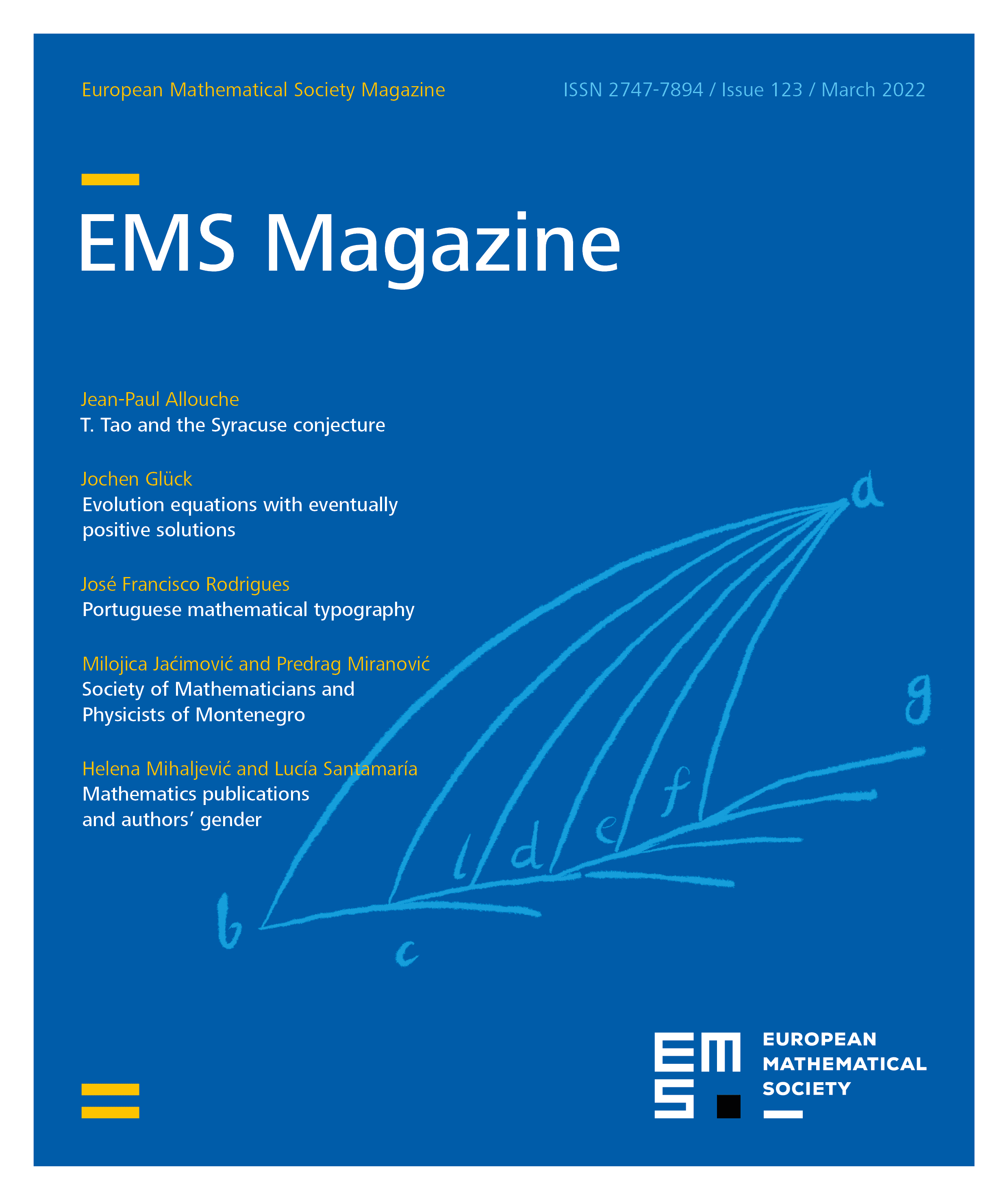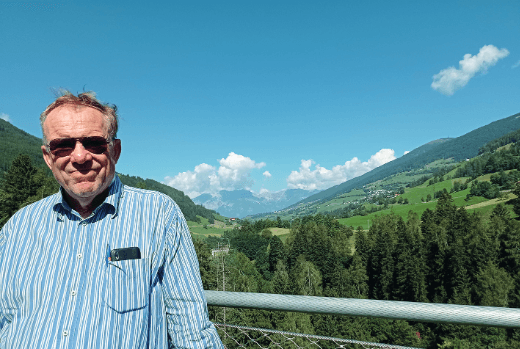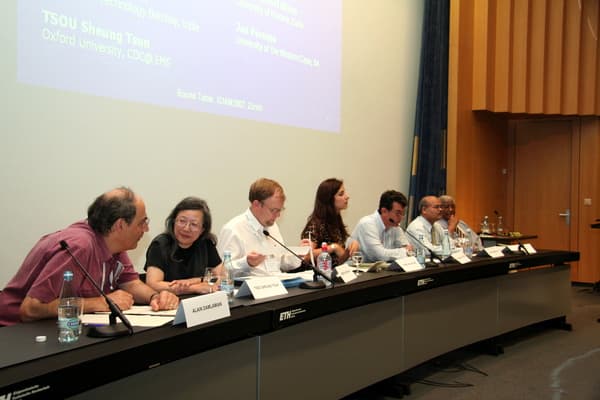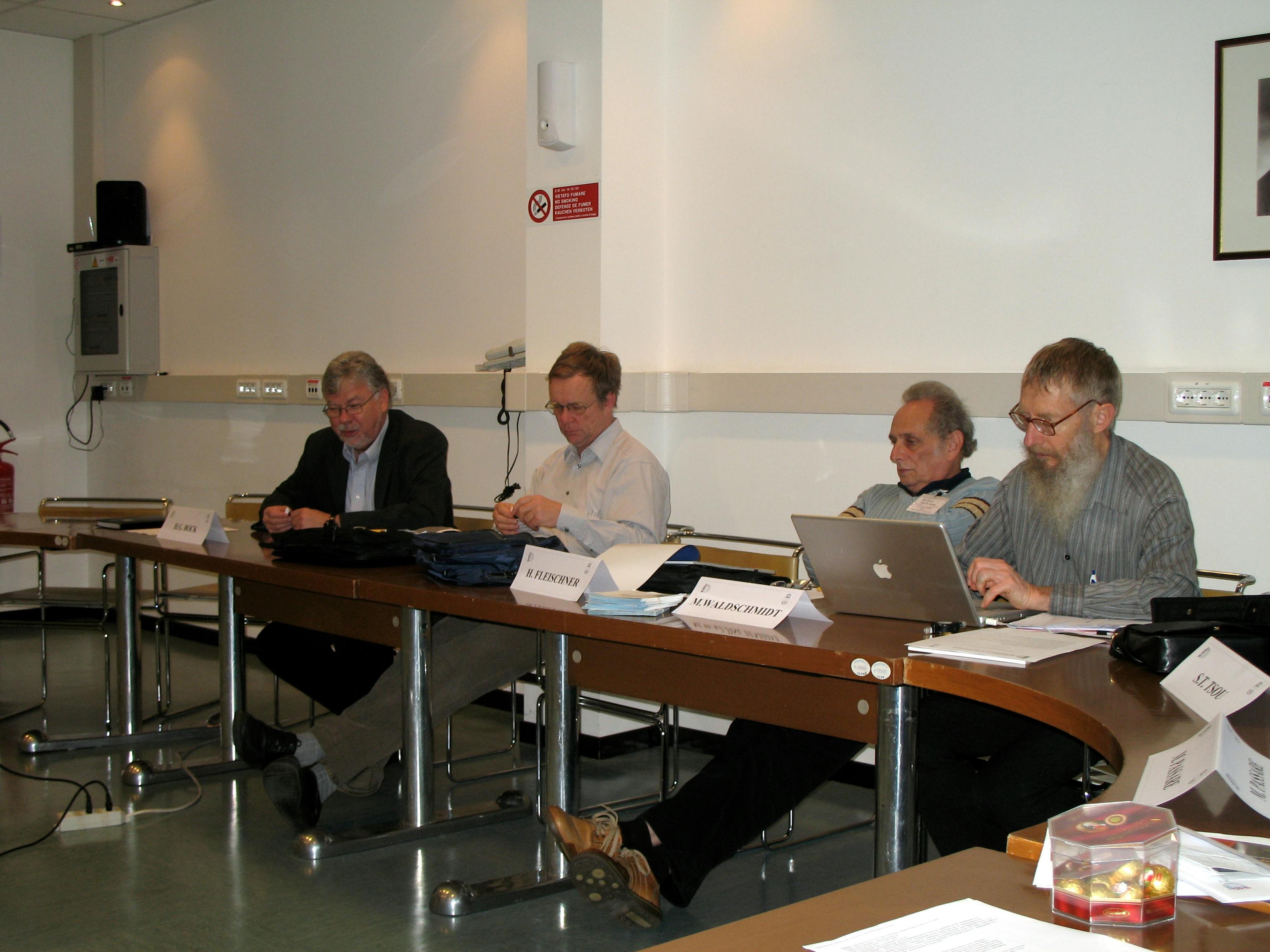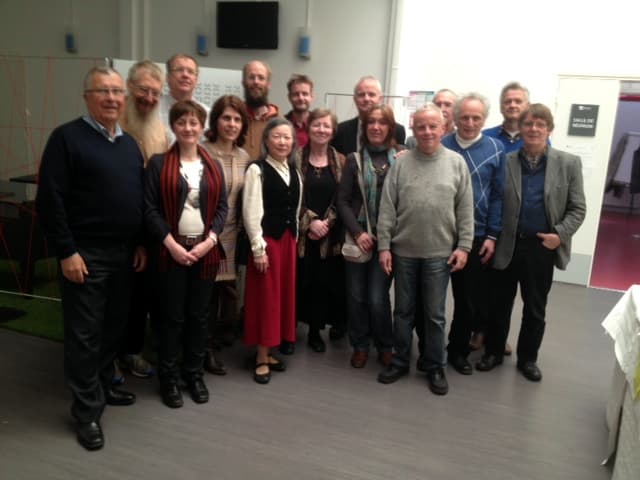Tsou Sheung Tsun with help from Juan Carlos De los Reyes, Michel Théra and Andrea Walther
The Committee for Developing Countries was very sad to learn of the untimely and sudden death of long-term member Andreas Griewank. A lot of regrets were poured through the CDC network on learning the news.
Andreas has been an active member of this committee for many years, his enthusiasm was contagious and his activities widely spread in the world. He will be missed by many.
I have such good memories of Andreas, his energy and enthusiasm, and his hospitality in Berlin for CDC.
Many people among the actual and past CDC members know him well and testified to his worldwide actions, his enthusiasm, the nice person he was. He will be missed by the mathematical community.
I feel very sad to learn that Andreas is no more. He was a very friendly and active member of our committee for many years. I liked his sense of humour. He was very efficient when he organised a meeting of CDC in Berlin in 2014. I miss him.
And even some future plans:
… we were even talking about visiting the Ecuadorian university some time ago.
…
Photograph of Adreas Griewank taken in Ecuador shortly before his sudden death
So we connected Andreas with good humour, activities all over the world, enthusiasm, and we miss him a lot!
Let us first give voice to the long-term CDC member who was closest to Andreas in research: Michel Théra, professor emeritus at the University of Limoges, and Adjunct Professor at the Federation University Australia.
Andreas obtained his PhD “Analysis and Modification of Newton’s Method at Singularities” from the Australian University, Canberra under the direction of R. P. Brent and M. R. Osborne in 1980. Then he was a postdoc for one year at the University of Cambridge, became an assistant professor at Southern Methodist University, Dallas until 1987. After this, he moved to Argonne National Laboratory as a Senior Scientist, and then joined the Technische Universität Dresden as a Professor before moving to Humboldt University of Berlin. When he retired in 2015, he became Dean of the School of Mathematical Sciences and Information Technology at Universidad de Investigación de Tecnologia Experimental Yachay in Quito.
During his academic career, Andreas’ research focused on algorithmic differentiation and iterative methods for nonlinear optimisation, for which in 2017 he was made a Fellow of the Society for Industrial and Applied Mathematics.
For non-specialists, let us briefly describe Andreas’ main research interest. Many derivative arrays such as gradients, Jacobians, or Hessians are essential tools for computational purposes in various areas. This is the case for instance in numerical optimisation when using a gradient descent method, or Newton’s method. When computing derivatives by hand or using computer algebra systems, one may observe that the formula for the derivative grows very rapidly in a combinatorial way. Andreas was one of the leaders of what is called automatic differentiation (AD), which is a technique that allows the computation of derivatives of any order for a function specified by a computer program. By avoiding the manipulation of complex function formulas with exponential growth, AD is very useful in various areas of applied mathematics, including numerical optimisation and also computational fluid dynamics, atmospheric sciences, and engineering design optimisation or more generally when working on computational simulation models.
Andreas spent a sabbatical year as researcher at INRIA Sophia Antipolis, Antibes, France in 1988–1989.
Among other honours, he won the Max-Planck Research Prize for International Collaboration in 2001.
In 2006, as a member of the jury of the habilitation thesis of Darinka Dentcheva, Andreas welcomed me very warmly to his home in Berlin. I often recall this stay with pleasure.
Andreas chairing the round table at the ICIAM at Berlin in 2007
For those of us whose mathematical interests are far removed from optimisation, this gives us a more rounded picture of our friend and colleague. Thank you, Michel T.!
Prof. Andrea Walther from the Department of Mathematics, Humboldt-Universität zu Berlin, kindly sent us the official obituary, of which the following excerpts give some more details and further insight into Andreas Griewank’s mathematics and achievements.
Andreas was born in Kassel on 26 January 1950. He passed away suddenly and unexpectedly on 16 September 2021, at the age of 71.
In addition to his contributions to AD, Andreas continuously made important contributions to the design and analysis of nonlinear optimisation algorithms. Of the many accomplishments with regard to very different aspects of nonlinear optimisation, just a few are mentioned here. First, the idea of partial separability was developed by Andreas jointly with Prof. Philippe Toint. This structural property is ubiquitous in optimisation problems, and can be exploited to greatly improve the efficiency of algorithms. A second example is his contribution to the convergence theory of Newton and quasi-Newton methods in different settings, including the infinite dimensional setting and the degenerate setting, in which the Hessian is singular the optimum. These topics were the subject of a series of papers that are still frequently cited, and are the basis of ongoing research. Third, the “Griewank function” serves as an academic test function in global optimisation. This function continues to be used widely in the global optimisation community, and is the subject of renewed interest because of the need for non-convex optimisation to minimise objectives in data analysis applications, including deep learning. Andreas’ scientific work was always marked by an abundance of ideas and infectious enthusiasm.
Andreas made also significant service contributions to several different communities. He organised numerous conferences and workshops worldwide. Often, the aim of these meetings was also to connect academic researchers with practitioners in the areas of AD and nonlinear optimisation.
Promoting young researchers was always close to Andreas’ heart. He supervised 23 doctoral students and numerous masters students from all over the world. He had a special interest in promoting and supporting mathematical education in developing countries.
EMS-CDC meeting at ICTP at Trieste
At some point, we found out that Andreas was very good at organising round tables, and he was thus roped in to organise a couple of them during the EMS annual meetings in Amsterdam and in Krakow, and also during our own CDC meetings. We found that his secret was meticulous preparation beforehand, and he also got his then graduate student Levis Eneya (from Malawi) to help him with much of the correspondence, chasing-up of invitees and so on. He must have been pleased to see Levis elected president of SAMSA in 2012.
For those of us who attended the CDC annual meeting in 2014, organised and invited by Andreas, it was a most pleasant time and everything was well organised. We had a round table discussion in the headquarters of the IMU, and we were invited by him and his wife to a nice visit to his family home (with excellent food of course).
In meetings, Andreas was quite the “trouble-maker”, since he questioned many proposals and quite often disagreed with others. But he always had a good reason for doing so, and he was of course a great respecter of democracy, for after a heated discussion, he usually ended up by saying that “if you all agree, of course I’ll go along”. He said also: “So I’ll step down from my nitpicking Oberlehrer soapbox,” in one email after some exchanges of opinion. Another exchange of emails was for the written report of a (not EMS) conference; in response to “Just a private word to say how I liked your report (candid and all!)”, he replied “I have a hard time orienting myself in a world of superficial politeness. I hope you got the full report ….”
One heroic thing he did for CDC was to collect and distribute free mathematical books. It was at the EMS conference in Krakow 2012, and as usual, there were booksellers exhibiting their books, and very often their representatives are more than willing to give away the unsold books after the conference. So Andreas collected 100 books and took them back to Berlin, which he was able to do because he had come in a car with some others. With the help of his secretary Jutta Kerger, these books were catalogued, and he used his ingenuity (writing to embassies, etc.) to distribute them to various developing countries, sometimes by taking them in his luggage and delivering them by hand. It was really a success, so much so that he did it again after another big international conference (on applied mathematics).
Of course, his activities were not confined to those of CDC. For a number of years, he was the German representative with CIMPA (Centre International de Mathématiques Pures et Appliqueés). After he went to Ecuador, he organised a CIMPA School with Marc Lassonde in 2017 at Yachay Tech. Didier Aussel, also a CDC member, was the CIMPA representative responsible for the school. His comment was “we had a good time together during this school. Andreas was so enthusiastic!!” At some point, Andreas was also involved in the work of AIMS, particularly with their new centre in Senegal. And being German, he was also active in the work of DAAD. He was one of the few colleagues who visited Cuba several times, and even heard viva voce some of Castro’s famous marathon speeches!
Let us end with a warm and moving account from his Ecuadorian colleague Juan Carlos De los Reyes, Professor and Director, Centro de Modelización Matemática (MODEMAT), Escuela Politécnica Nacional de Ecuador.
Andreas landed in Ecuador in 2015 to take part in a new university oriented mainly towards scientific research: Yachay Tech. Apart from his academic interests, Andreas was motivated to support a socially oriented left-wing government, very close to his personal convictions. In fact, from the beginning, Andreas dedicated a significant part of his salary to supporting low-income students through scholarships.
Andreas’ personality was felt from day one. He was fully involved in the university development as Dean of the Faculty of Mathematical and Computational Sciences. During this period, the Mathematics curriculum, with a strong computational component, was established, as well as the Computer Science curriculum, oriented towards modern topics in machine learning and artificial intelligence. Andreas also made a significant effort to establish doctoral programs in the institution, a project which unfortunately he did not succeed in realising. Giving direction to a brand-new university is not easy, and even less so in a country with a lot of political turbulence. Andreas faced opposition from various sectors and had to fight quite a few battles for what he believed to be the best for the future of Yachay Tech.
His period in Ecuador undoubtedly left a strong trace on several of his students, who turned to mathematics with the passion that only Andreas knew how to sow. His time in South America was also productive in terms of research, leaving as a legacy his rigorous work on optimality conditions and automatic differentiation for optimisation problems with piecewise smooth functions.
EMS-CDC meeting at Limoges (Andreas is second left in back row)
What a moving portrait of the Andreas we knew and now miss!
Cite this article
Tsou Sheung Tsun, Remembering Andreas Griewank. Eur. Math. Soc. Mag. 123 (2022), pp. 25–27
DOI 10.4171/MAG/69